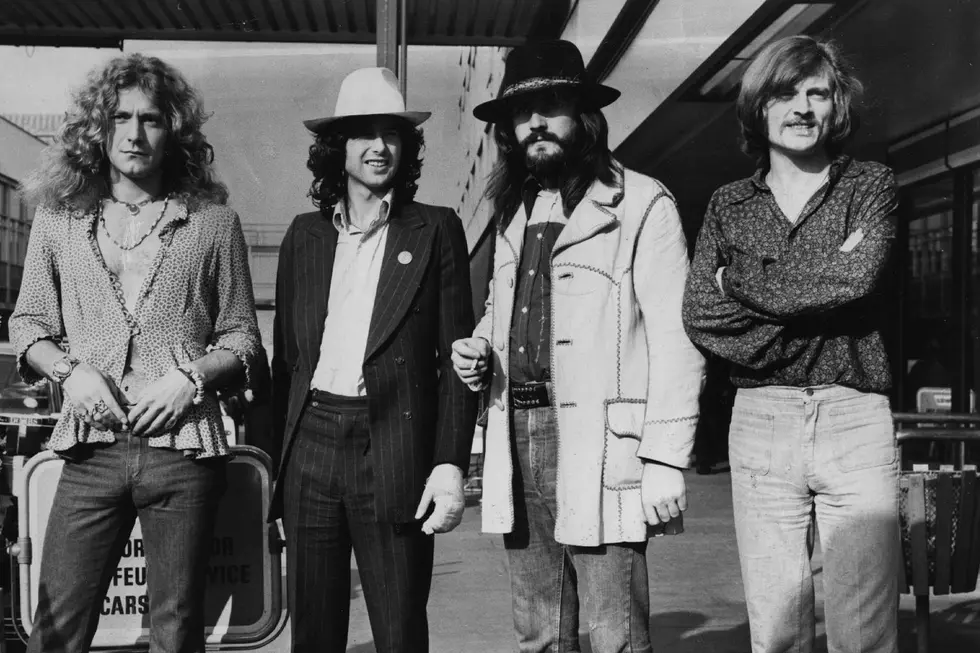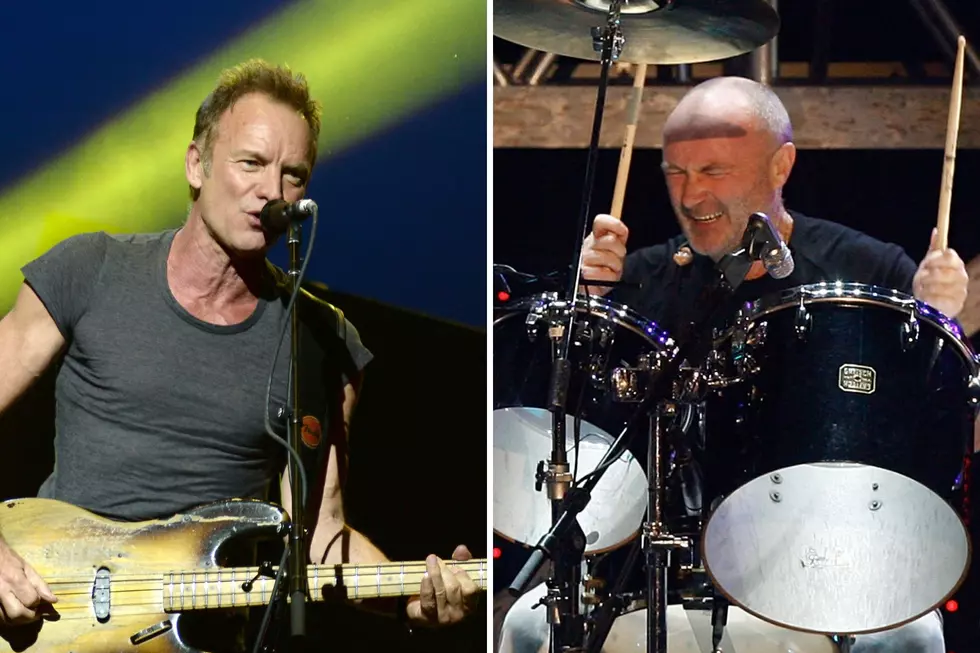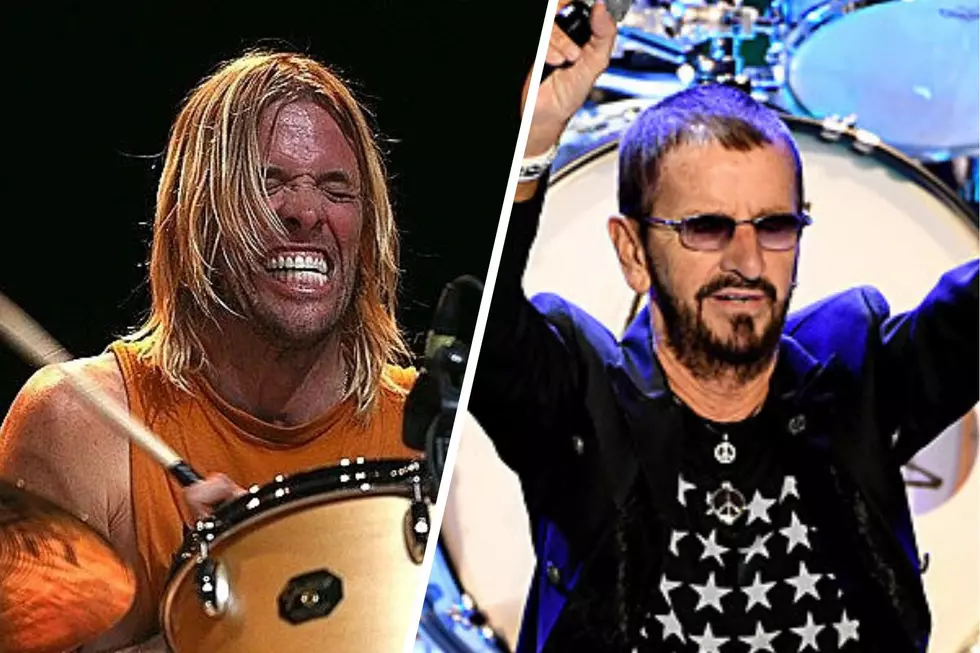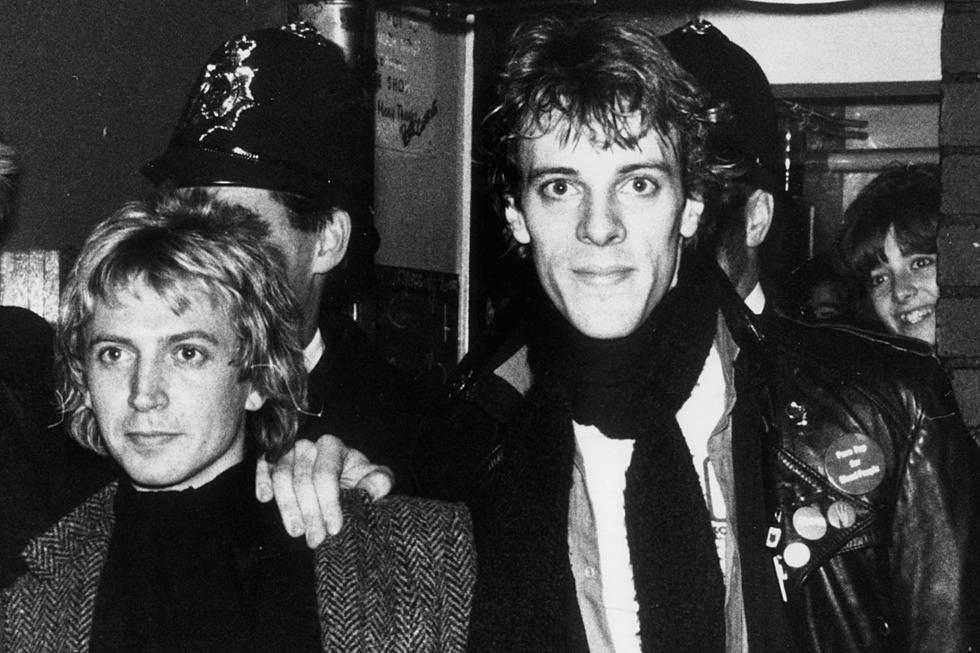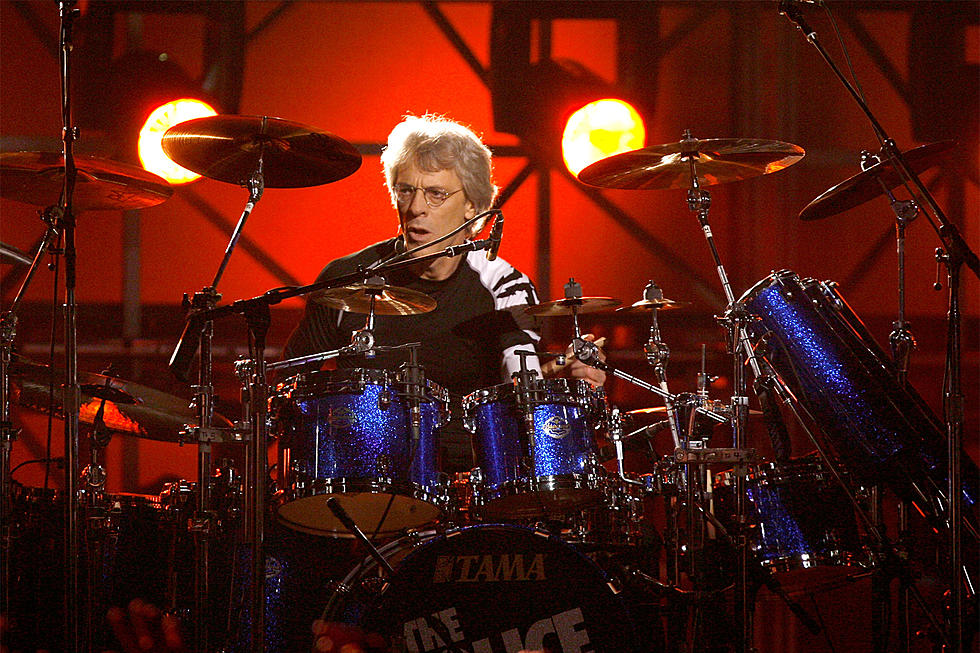
40 Years Ago: The Police’s Classic Lineup Plays Their First Show
In the early days of the Police, every little thing that the band did was most certainly not magic. It took some time for the punk-adjacent power trio of Sting, Stewart Copeland and Andy Summers to find their footing as a musical outfit in the late ’70s, before becoming the biggest band in the world in the early ’80s.
It even took a while for the group to become its famous triumvirate. Drummer Copeland had met bassist/vocalist Sting (born Gordon Sumner) in 1976, while the two were working in the decidedly un-punk genres of progressive rock and jazz fusion. After Sting moved to London, he and the American expat percussionist joined forces. Given the daily headlines about the Sex Pistols and the record contracts bestowed rapidly on the Pistols’ punk brethren, the Sting and Copeland figured they would try their hand at the burgeoning genre, despite thinking that they were each overqualified as musicians.
Attached to the idea of a power trio, the two brought aboard guitarist Henri Padovani and the Police began supporting the likes of Cherry Vanilla, Wayne County and Johnny Thunders in the spring of 1977 in the U.K. and the Netherlands. While Copeland and Sting were gelling musically, the two were discovering Padovani’s limitations (after all, he was the only guy in the band who wasn’t merely masquerading as a punk).
It was during this period that Sting and Copeland met Andy Summers via a side project called Strontium 90. The guitarist was a decade older than the boys and had played with Eric Burdon and the Animals, but musically, he seemed to fit in. When Sting approached Summers about joining the Police, he said he would only agree if he could replace Padovani, preserving the band as a trio. Copeland and Sting thought about it, but out of loyalty decided not to kick Henri out of the Police. Summers joined as an additional guitarist anyway.
“One by one, Sting’s songs had started coming in, and when Andy joined, it opened up new numbers of Sting’s we could do,” Copeland recalled to the Guardian in 2007. “So the material started to get a lot more interesting and Sting started to take a lot more interest in the group.”
In the summer of ’77, the Police played a pair of gigs as a foursome. But the feel wasn’t right and tensions between the band’s two guitar players ran high. Unhappy with the situation, Padovani left the band, which became the trio that Andy had desired a few months earlier. A couple of weeks after Henri departed, the Police played their first concert with the lineup of Sting, Copeland and Summers.
The headlining show on Aug. 18, 1977 was planned up north in Birmingham, England, at Rebecca’s, a small nightclub that the previous version of the Police had played in April while backing punk singer Cherry Vanilla. Decades later, Sting would recall the gig as a “crucial Rubicon” for his band.
“We walk onstage, the lights come up, and out of sheer desperation, panic, and I suppose character we somehow manage to kick off the shackles of self-doubt and despondency and within the first eight bars of the first tune begin to play with the unrelenting power of a ten-ton hammer,” the singer said in his autobiography, Broken Music. “The crowd, at first tentative, begins to go crazy. There is total mayhem, as if the audience is complicit in our need to make this one a great gig. We walk off after three encores, destroying the drums as we wade through the audience on the way to the dressing room, and knowing at last something rare has been uncovered here, that the deeper we dig the greater the prize.”
If Sting remembers that night as a triumph, his bandmate Summers (in the Police’s contrarian tradition) has a completely different memory of the Birmingham show. While the frontman looks back on the gig as a turning point, that moment was still to come for the band’s new guitarist.
“It’s very fast, very loud, and features heavily garbled shouting noises usually accompanied by large mouthfuls of spit,” Summers wrote in his memoir, One Train Later. “We go onstage in the small, dark club and whip through our entire set, accomplishing all the above values, and are done in about twelve minutes. We are supposed to play for an hour. … We are so intent on being viewed as punk that we miss the music entirely… We are a band, but to me it feels like one in name only.”
Either way, the Police would persevere, playing a smattering of shows in the fall of 1977 before starting sessions on the band’s debut LP. 1978’s Outlandos d’Amour would contain the hits “Roxanne,” “Can’t Stand Losing You” and “So Lonely” and make the Police rock stars.
There’s one last postscript to this story. When Sting, Copeland and Summers reunited for a full-blown world tour in 2007 (after years of swearing it would never happen), they made sure that the trek’s first U.K. date was in Birmingham. The 15,000-seat venue was just slightly bigger than the club that saw this trio’s first show, but the place was the same – three decades later.
Police Albums Ranked in Order of Awesomeness
More From US 103.1 FM
